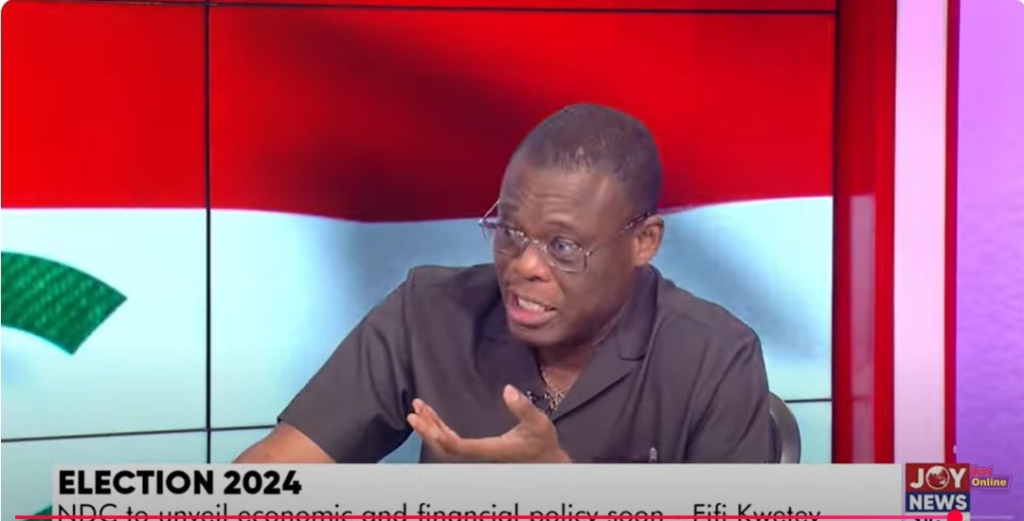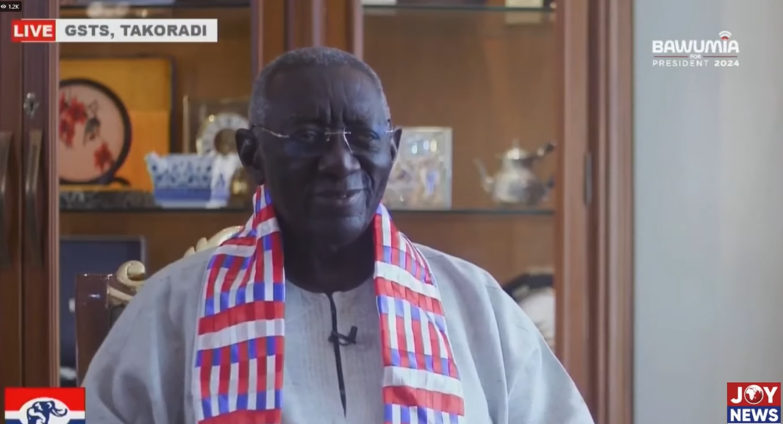The General Secretary of the National Democratic Congress (NDC), Fifi Fiavi Kwetey, has refuted claims that former President John Agyekum Kufuor left behind a robust economy, stating that the reality of Ghana’s financial situation at the time was far from strong.
Speaking on JoyNews' Upfront, Mr. Kwetey addressed the challenges the National Democratic Congress (NDC) faced when it assumed power in 2009, drawing attention to the economic issues inherited from the New Patriotic Party (NPP) government under Kufuor.
Mr. Kwetey described the 8% economic growth during Kufuor’s tenure in the final years of his administration as “cosmetic,” emphasising that it did not reflect the reality of the economy’s fundamentals.
“That growth was nominal, driven by temporary factors rather than substantive improvements in the real economy,” he explained. “The fundamentals were weak, and we had to work hard to rebuild the economy from the ground up.”
"..Somehow people forget, people create the impression as if that President Kufuor left an economy that was so strong. No, it was not strong."
He pointed out several key indicators of economic instability that characterized the period.

According to him, the cedi depreciated by over 20% in the final year of President Kufuor’s administration, highlighting significant weaknesses in currency stability. Inflation, which stood at 18% when the NDC took over, quickly rose to 21%, exacerbating the financial challenges.
Again, he noted that the banking sector was also in crisis, with the Ghana Commercial Bank teetering on the brink of collapse.
Additionally, the country’s balance of payments was severely negative, underscoring difficulties in external trade and financial management, adding that a fiscal deficit of 15%, coupled with judgment debts and unpaid commitments amounting to 22% of GDP, was clear evidence of economic mismanagement during the period.
Mr. Kwetey, however, drew parallels between the challenges faced in 2009 and the current economic crisis, asserting that the NDC has a track record of tackling severe economic problems.
“This is not the first time we are coming into government and meeting challenges. In 2009, we inherited an economy in disarray, but through hard work and strategic measures, we stabilised and rebuilt it. The scale of the current crisis is much bigger, but we are ready to face it once again.”
Latest Stories
-
NFFA elects Michael Kwetey Tetteh as its president
15 minutes -
NPP outlines guidelines ahead of 2025 National Delegates Conference
22 minutes -
Ken Ofori-Atta’s extradition: FBI clears first major hurdle – No witch-hunt
35 minutes -
NDC executives deny involvement in rogue anti-galamsey taskforce
2 hours -
Bailiff jailed four years for forging judge’s signature
2 hours -
Presidency launches gov’t accountability series to enhance transparency
3 hours -
2024 Election: Bawumia’s early concession undermined results collation – Inusah Fuseini
3 hours -
Judge orders Trump administration to stop immigration arrests without probable cause in Southern California
3 hours -
What Ghana Must Fix: ISSER’s GSDO 2024 report exposes key social gaps in housing, jobs, and governance
4 hours -
“I want to help with ideas” – Socrate Safo to creatives in government
5 hours -
Prof. Nana Ama Browne Klutse: Championing environmental sustainability and youth employment in Ghana
6 hours -
Ablekuma North rerun: ‘I was only there to de-escalate the situation’ – Mustapha Gbande
6 hours -
I was once a footballer – Socrate Safo reveals
7 hours -
See the blackout areas as ECG’s planned maintenance proceeds today
8 hours -
Democracy advocacy group condemns Ablekuma North violence
8 hours

